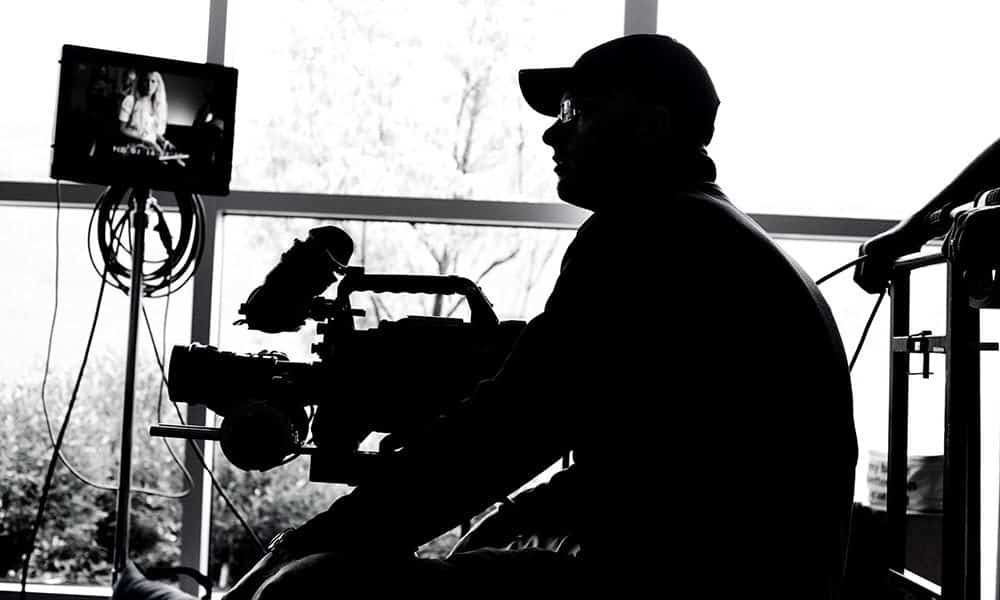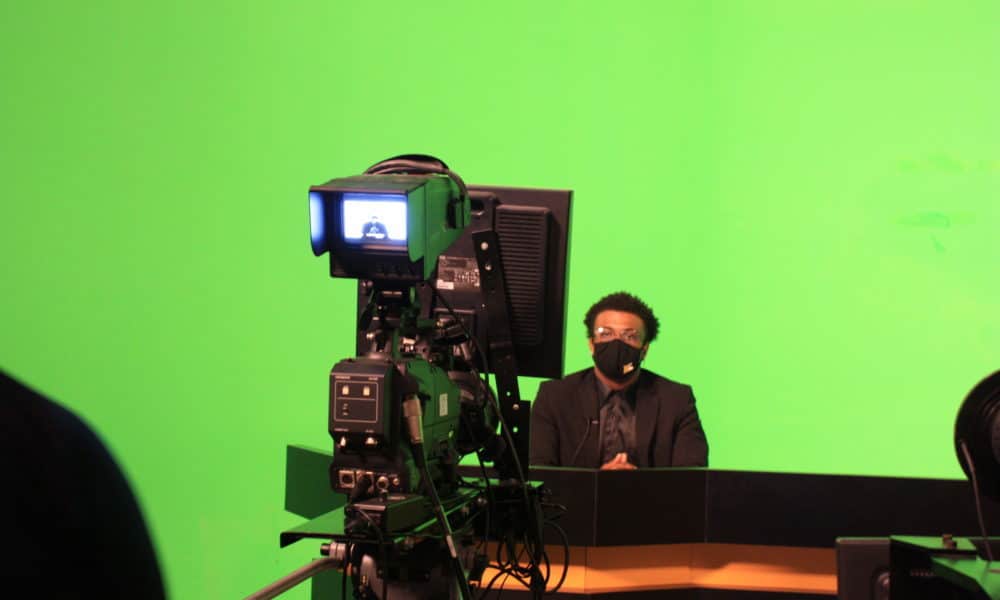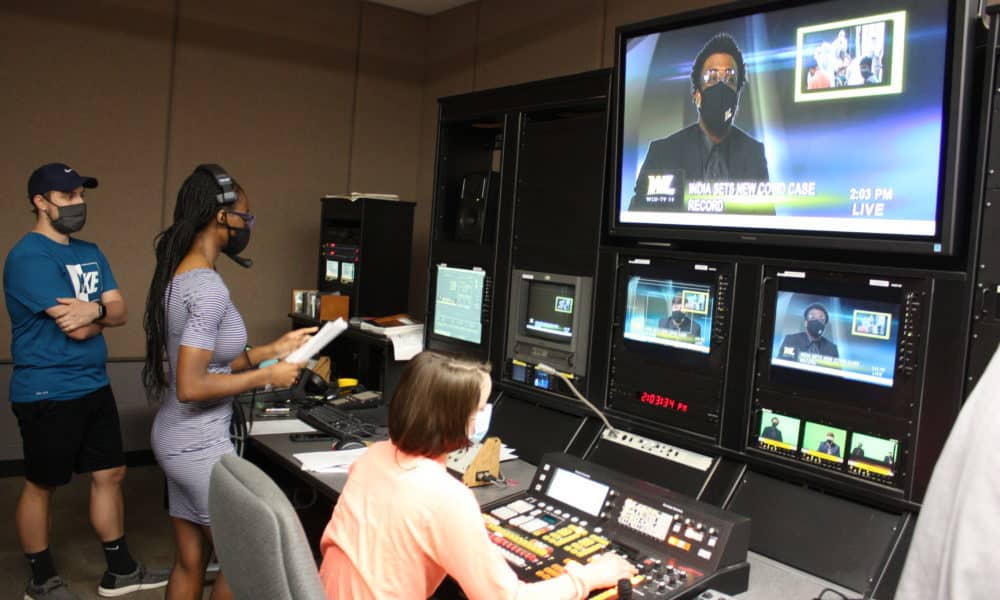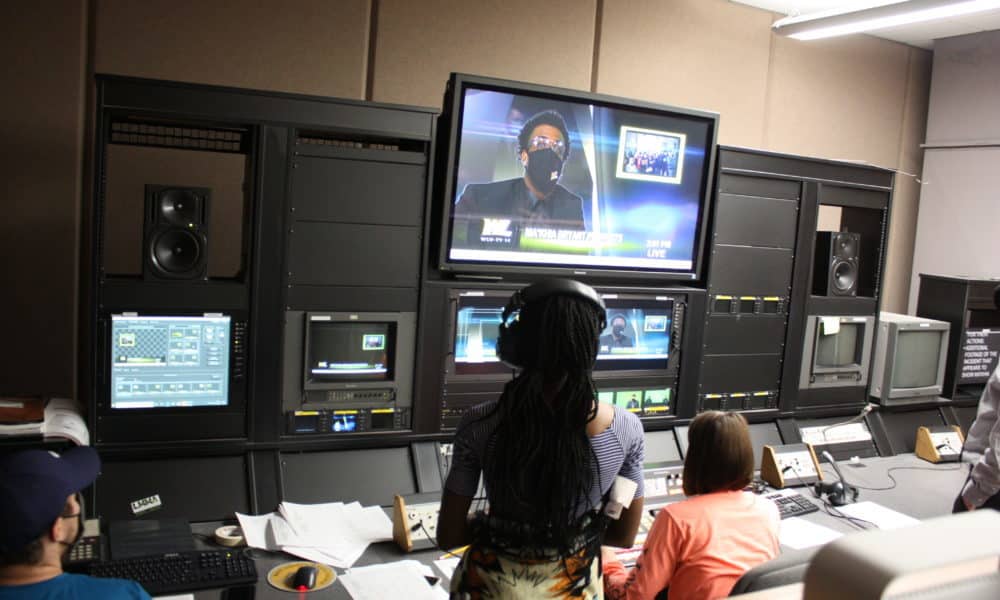



The Bachelor of Science in Media Communications (BS) degree is a 120-credit hour program that includes 26 credit hours of required media communications core, 21 credit hours of media arts foundations and 37 credit hours of general studies, and one or two concentrations:
- Journalism-public relations
- Design production
- Media production
Students in the media communications degree must choose one of the above concentrations. Students have the option to choose a second concentration, or they may choose electives (which can include a minor) to total 120 credits. If a student wishes to take a minor, it must be from outside of the media communication program.
The media communications core provides students with a hands-on foundation in media, production, writing/reporting, theory, research and media law/ethics. The program also contains a media arts foundation in design thinking, video editing, computer graphics and visual critical literacy. Students have the option of completing a capstone or internship. All students design a media portfolio their senior year.
The journalism-public relations concentration includes courses in broadcast news writing, writing for media, on-campus internships in journalism and public relations, and an advanced course selection in public relations and journalism, copyediting/proofreading, multimedia/social networking, sports writing and writing for web/social media.
The design production concentration includes courses in graphic design history, visual communication, photography, 2D foundation design and digital imaging.
The media production concentration includes courses in audio production, television production, podcasting, remote production, news directing and producing and broadcast performance.
Topper Station, WLU-TV 14, WGLZ and the Trumpet (student-run newspaper) provide hands-on experience in production, writing and promotion beyond the classroom.
“Integrated Communication Studies” has been changed to “Media Communications”
The Media Communications major prepares students for careers in communication consulting, health communication, sales, human resources, public relations, event planning, and many others.
In addition, the degree prepares students for the systematic study of communication at the graduate degree level.
The major is the perfect degree for students with multiple interests and diverse talents because the degree provides theory, tools, and techniques for analyzing, managing and improving communication in every arena of professional and personal interaction.
Media Communications Degree Requirements
What Do You Do With a Degree in Media Communications?
GRADUATE STUDY:
- Business Management
- Communication/Communication Management
- Education
- Journalism
- Law
- Motion Picture/Television
- Political Science and International Relations
- Psychology
- Public Policy and Administration
- Sociology
MASS MEDIA CAREERS:
- Advertising and Marketing
- Film (documentary & feature length): Development, Distribution, Production, and Promotion
- Music Industry
- Public Relations
- Talent Agency
- Technology and its development
Television: Development, Production, Programming, and Promotion
ACADEMIC, SOCIAL SERVICE AND GOVERNMENT CAREERS:
- Art and Architecture
- Broadcast and Print Journalism: Anchor, Reporter, Production, Editor, and Publishing
- Counseling and Consulting
- Education: Teaching and Administration
- Election Campaign Promotion
- Finance
- Human Resources
- Information Services
- Municipal Planning
- Non-profit Corporations and Fundraising
- Service in Elective Public Offices
- Social Work
What Do You Do With a Degree in Media Communications?
GRADUATE STUDY:
- Business Management
- Communication/Communication Management
- Education
- Journalism
- Law
- Motion Picture/Television
- Political Science and International Relations
- Psychology
- Public Policy and Administration
- Sociology
MASS MEDIA CAREERS:
- Advertising and Marketing
- Film (documentary & feature length): Development, Distribution, Production, and Promotion
- Music Industry
- Public Relations
- Talent Agency
- Technology and its development
Television: Development, Production, Programming, and Promotion
ACADEMIC, SOCIAL SERVICE AND GOVERNMENT CAREERS:
- Art and Architecture
- Broadcast and Print Journalism: Anchor, Reporter, Production, Editor, and Publishing
- Counseling and Consulting
- Education: Teaching and Administration
- Election Campaign Promotion
- Finance
- Human Resources
- Information Services
- Municipal Planning
- Non-profit Corporations and Fundraising
- Service in Elective Public Offices
- Social Work
Contact
For more information, email:
- Christian Lee leechris@westliberty.edu
- Danielle Mehlman-Brightwell danielle.mehlman-brightwell@westliberty.edu
- Ryan McCullough rmccullough@westliberty.edu
- Jeff Pfister jeff.pfister@westliberty.edu